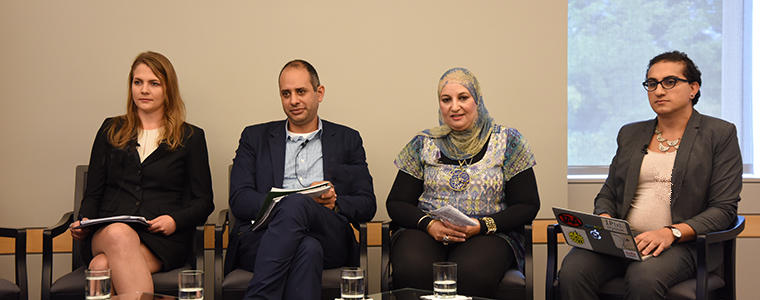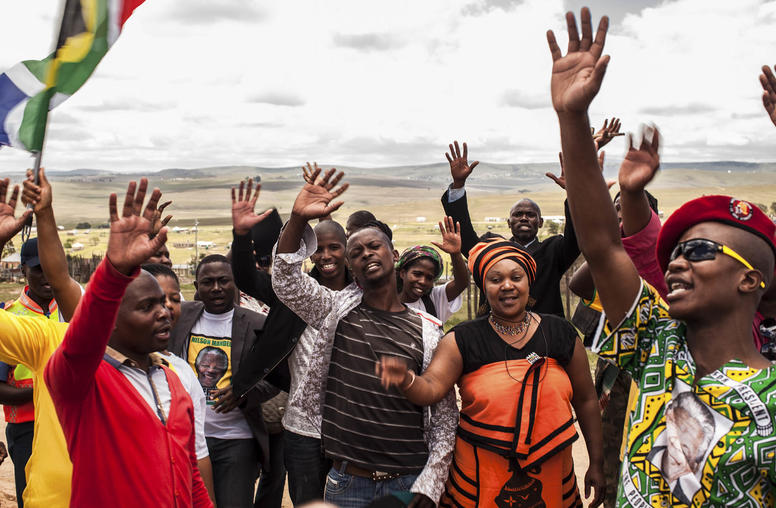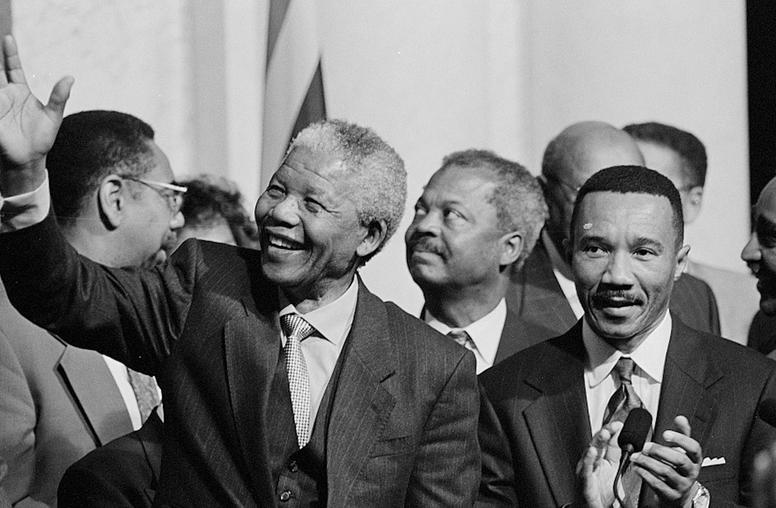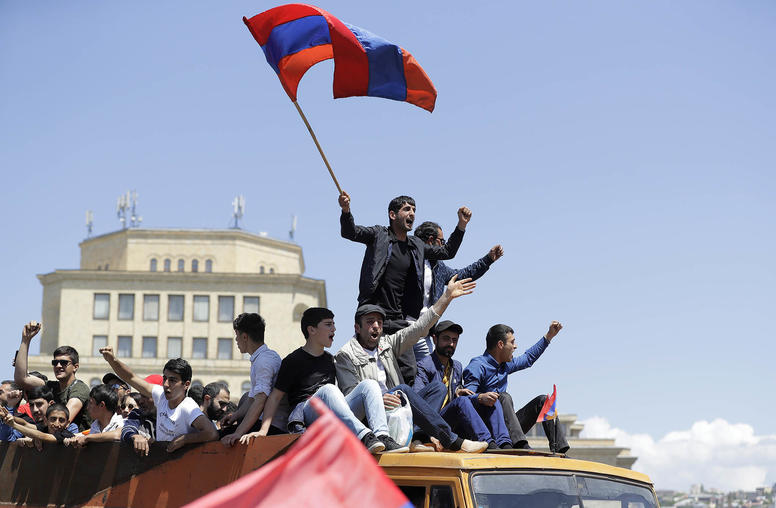After the Dust Settles: Social Media in Political Transitions
Part of the ‘Blogs & Bullets’ initiative
When Egyptians, Ukrainians and others massed to demand democracy in recent years, the world noted their use of social media to build these movements. But after a government is changed and the crowds go home, social media may help spur political and social polarization amid a country’s difficult political transition. On September 29 a forum was held to discuss the latest Blogs & Bullets report on social media’s role in this relatively un-examined transitional phase. The report explores how dangerous polarizing trends might be overcome to give transitions a greater chance of success. Michael Posner, the former Assistant Secretary of State for Democracy, Human Rights, and Labor delivered a keynote speech.

For the past five years, the PeaceTech Lab at the U.S. Institute of Peace and George Washington University have partnered on the Blogs & Bullets initiative, a series of studies examining the role of social and digital media in global political protest movements. The resulting research program has produced three widely-cited Peaceworks reports looking at the Iranian Green Revolution, the early months of the Arab Spring protests, and the Syrian crisis.
On September 29, 2015 panel of experts examined a new report that looks at the relatively understudied transitional phases following those often euphoric moments of protest. The report explored the ways social media contributes to political and social polarization in transitional periods, and how such dangerous trends might be overcome to give transitions a greater chance of success.
The event featured a summary of the report’s major findings, two panel discussions, and a keynote address by Michael Posner, the former assistant secretary of state for democracy, human rights, and labor. The first panel discussed Egypt, and the second looked at other countries attempting to transition from protest to peaceful, stable, and functional democracies.
Highlighted Sessions
- Michael Posner (keynote speaker), Former U.S. Assistant Secretary of State for Democracy, Human Rights, and Labor (DRL), currently a Co-Director for the Center of Business and Human Rights at New York University’s Stern School of Business
Blogs and Bullets Research Team
- Marc Lynch, Professor of Political Science and International Affairs; Director, Project on Middle East Political Science, George Washington University
- Sean Aday, Associate Professor of Media and Public Affairs and International Affairs; Director, Institute for Public Diplomacy and Global Communication, George Washington University
- Deen Freelon, Assistant Professor of Communication Studies, American University
Experts' Panel: Egypt
- Alexandra Siegel, Department of Politics, New York University; Graduate Student Researcher, NYU Social Media and Political Participation (SMaPP) Lab
- Sahar Mohamed Khamis, Associate Professor, Department of Communication, University of Maryland, and former Head of the Mass Communication and Information Science Department in Qatar University
- Tarek Radwan, Associate Director for Research, Rafik Hariri Center for the Middle East, Atlantic Council
- Alex Hanna, Department of Sociology, University of Wisconsin-Madison
Experts' Panel: Comparative Cases
- Joshua Tucker, Professor of Politics, New York University; Co-Director, NYU Social Media and Political Participation (SMaPP) Lab
- Adrienne Lebas, Associate Professor, Department of Government, American University



